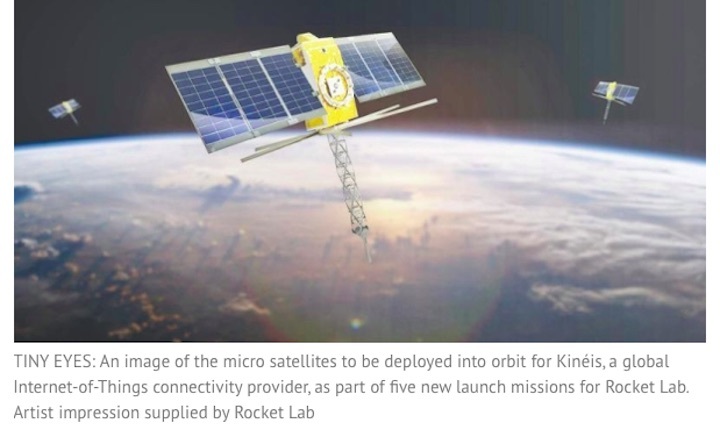11.09.2021

Rocket Lab yesterday announced a contract to deploy an entire satellite constellation across five dedicated Electron missions.
The launches are for Kinéis, a global Internet-of-Things (IoT) connectivity provider and scheduled for launch beginning in the second quarter of 2023, from Mahia. The constellation will enable Kinéis, a company backed by private and public investors — including the French government's space agency CNES (Centre National d'Études Spatiales) and CLS (Collecte Localisation Satellites), an international space-based solutions provider — to improve its global IoT connectivity.
“We're thrilled to be Kinéis' launch partner and look forward to delivering their constellation across five dedicated missions in quick succession,” Rocket Lab chief executive Peter Beck said.
“Deploying an entire constellation and having it operational quickly requires each satellite to be deployed to exactly the right orbit.”
Kinéis currently operates the Argos system, an international scientific collaboration between CNES, the National Oceanic and Atmospheric Administration (NOAA), the European Organisation for the Exploitation of Meteorological Satellites (EUMETSAT) and the Indian Space Research Organisation (ISRO), to monitor wildlife, fisheries, and to collect data about Earth's climate and environment through CLS.
Kinéis' new constellation will complete the current system with more powerful 30kg-class nanosats that integrate IoT technology and a ship-tracking Automatic Identification System (AIS). Once deployed, this technology will allow Kinéis to expand across multiple industries and scale from 20,000 devices connected to millions.
In addition to these missions, Rocket Lab will further contribute to the international Argos system with another upcoming Electron launch. Rocket Lab is the launch provider for the Argos-4 mission for General Atomics, which is developing the satellite for the United States Space Force on behalf of NOAA. That mission is scheduled to launch in early 2022.
“Argos is an international programme that collects data from thousands of sensors and transmitters located around the world. Currently, data is collected and distributed for use in numerous applications, including ocean buoy tracking, wildlife and fishery monitoring, and maritime security, as well as non-environmental uses,” a General Atomics statement said.
Quelle: The Gisborne Herald
